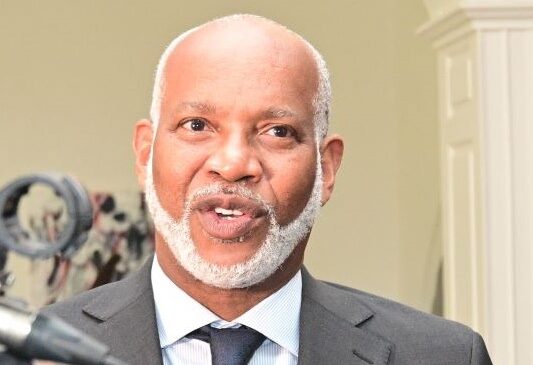Submitted by Terence Blackett

An ideal form of government is democracy tempered with assassination – Voltaire
If we believe popular consensus that anarchy is based on mob rule – then what constitutes democracy? This question comes at a time when Western democratic societies have finally declared their global triumph and ‘the end of history,’ – but where there has never been a more pressing need for greater clarity and understanding of the functions of mainstream politics in the context of late-modern political discourse.
At the start of the 18th century the battle between religion and science raged with nothing much changing in the last [200] years with each entity still striving for the soul of Western societies. While the church ministered to a constricted spiritual life, secular society came to embrace the material world as the primary reality, materialism as the dominant value, and ultimately economic growth as the primary human purpose.
It was during this period that the dualistic Enlightenment philosophies of Hobbes & Locke set the stage for modern government where the Hobbesian view claims that “the state of nature was a state of war… nasty and brutish” while the Lockean view saw “social contract as the mechanism by which not only life would be preserved but more importantly, (property) possessions, along with the right to own them.”
There is an obvious paradox here for Hobbes: for one of the over-riding central issues brought to the fore is what happened when we shifted from a medieval world view marked by the logic of complementarity, (where the politicians at that feudal stage were really congresses of feudal overlords) and the (modern Parliaments of today are nothing more than the assemblies of rich merchants, lawyers & doctors) – so that both the moral and the material can cohere together based on a modern world view marked by the dualistic logic of polarized opposites. So today we are forced to choose between a purely spiritual/moral view or a purely humanistic/materialistic view based on historical antecedents.
If we accept the social contract theory of Hobbes and Locke as the fiat for the institutional framework of modern government, then we accept with it the boundaries and the limitations which have created our own political paradigm and as such have defined our own ideological ethos. A contract defines the limits and powers on both sides of the agreement. It specifies what is expected of each person and sets the terms that counts as violations of the contract. That is why if the electorate votes for representatives based on manifesto promises – if there is a breach of contract, the natural law by itself allows the right of recall of that representative. Nevertheless, while contract theory gives us an historical idea of the past and a barometer for the future – the on-going process of change and development is sufficient for the continuity of this subject of modern democracy – although the 18th century Enlightenment ideas still leave us with the inevitability of a balance of negatives.
The state (pre & post modern) was in principle created for the sole purpose for the preservation of private property, so as to avert the extinction of the human race through inordinate greed, and a dispossessive quest for personal enrichment at the expense and ultimate detriment of others in the society. And although absolute power versus a prescribed form of liberal democracy has been the struggle since the early days of the 17th & 18th century – we have not succeeded in curbing the Hobbesian dilemma – i.e., the human “condition where every man was against every man, and life had no real civic or moral foundation… With this condition came the real and present fear of violent death and the life of man was solitary, poor, nasty, brutish and short”. Much of the 20th century has seen the results of that symbiotic struggle.
Political democracy has since migrated into the 21st century and many are calling for a fresh look at this form of governance. According to the research organization Freedom House, [117] of the world’s [191] countries are considered democratic. In the last [200] years, the rise of constitutional forms of government has been closely associated with peace, social stability and rapid socio-economic development- yet we have fought [2000] wars with [2] major world wars in the last century alone to the tune of [60] million dead and countless millions maimed and displaced.
Democratic countries paint this picture that they have been more successful in living peacefully with their neighbors, educating their citizens, liberating human energy and initiative for constructive purposes in society, economic growth and wealth generation. However on closer examination, if one accepts Matthew White’s argument, then – “if you consider slavery and democracy to be mutually exclusive, then no major power was a democracy until the French Revolution, and the United States passed nearly its entire 1st century without being a proper democracy.” White further asserts that “if you consider women’s suffrage to be an essential component of democracy, then no nation was a democracy until the 20th Century. Switzerland, the poster boy of peaceful democracies, didn’t pass this threshold until 1971 (and at the local level until 1990). France fought two World Wars without being a proper democracy. With this proviso (“women have to count”).”
Over the past two decades, we have witnessed a democratic revolution sweeping the world, started in Latin America, and then sweeping through Eastern Europe and most recently across Africa. White argues that “if you insist that a democracy must be free from all corruption, bribery, vote fraud, cronyism, intimidation and ballot box stuffing, then even a fine old democracy like the United States fails the test more often than we like to admit. The 1960 and 1972 presidential elections, for example, had enough irregularities and questionable activities to make honest civil libertarians wring their hands and worry whether any country can meet the high standards set by political theorists.”
America along with Europe have set the benchmark models for what democracy entails but U.S Supreme Court Justice Louis D. Brandeis (1856-1941) warned that “we can have democracy in this country, or we can have great wealth concentrated in the hands of a few, but we can’t have both.” The sad irony is that 21st century democracy has now morphed into a fusion of capitalist enterprise and political autonomy in the hands of a few – given consensual legitimacy through a rigged ballot-box oftentimes and a comodification process marked by who can spend the most money purchasing individual conscience through “PROMISES” which prove to be “comforts” for fools. The end-result is voter apathy, disillusionment with the political process and a hatred and scant disregard for politicians. Thomas Jefferson said it well. “Where the people fear the government there is tyranny, where the government fears the people there is liberty.” So while feudalist regimes created “an oligarchy of military strength, divine right, aristocratic lineage and land gradually gave way to an oligopoly of wealthy (modern) merchants” where according to David Korten find that – “corporations now rule the world.”
After reading and analyzing David Korten’s thesis I am convinced and duly concur that reclaiming our political spaces is crucial given that political rights belong to the people and not to artificial legal entities. As instruments of public policy, corporations should obey the laws decided by the citizenry, not write those laws. Corporations’ claims to the same constitutional rights as natural born persons are a gross distortion of the concept of rights. Particularly pernicious is the corporate claim to the 1st Amendment protection of the rite of free speech, on which corporations base their right to lobby and carry out public campaigns on political issues.
I totally agree with Korten that our first civic duty to remove corporations from the political sphere would be to eliminate all tax exemptions for corporate expenditures related to lobbying, public education, public charities, or political organizations of any kind. If democracy is to survive, reforms must not only get corporations out of politics but also limit the power of big-money to influence the voting behaviour of ordinary citizens.
Korten further argues that with the dominance of the mass media and their growing penetration of the classroom, corporations increasingly control and shape our primary institutions of cultural reproduction, constantly reinforcing the values of CONSUMMERISM* and the basic doctrines of corporate libertarianism – to align mainstream culture with the corporate interest. To reclaim our colonized political spaces, we must reclaim our colonized cultural spaces – for these measures require serious consideration and action.
If government by the people and for the people is the basis of democratic rule and we are the “ones” who hold the balance of power, we must be allowed to freely choose our system of government by referendum where politicians cannot pre-vet the outcome or the socio-political corporatocracy cannot hold a monopoly on that power. We must strongly defend term limits on our elected representatives but have the power to recall individuals who break pledges or renege on Manifesto and campaign promises. Included in this vein, are those politicians who willfully “LIE” when full disclosure in all communications is required and the removal of “privilege” that ensure that politicians go to jail, pay fines and are prohibited from holding public office in the future.
So my argument is this: In the absence of divine authority on the landscape of modern politics – the fundamental principle of morality which must govern our actions must be based on the Utilitarian pragmatic ethos of the Greatest Happiness Principle which seeks a course of action that is most likely to produce the greatest good (in terms of satisfaction, pleasure, happiness) for the greatest number of people.
Anything less results in tyranny, moral depreciation and social breakdown!!!




The blogmaster invites you to join the discussion.